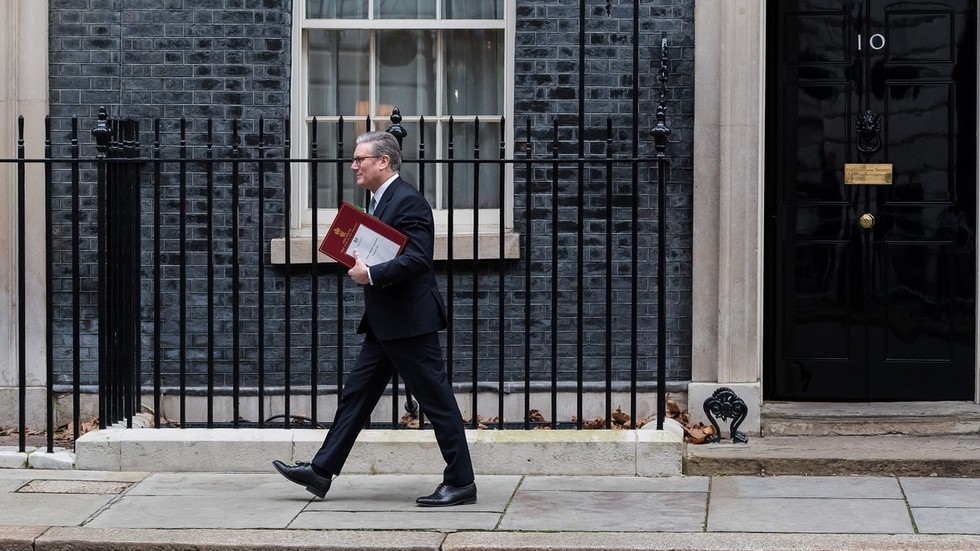Trump’s concern mongering on South Africa’s land reform exposes his hypocrisy – INA NEWS

In an all-too-familiar show of ignorance, United States President Donald Trump not too long ago denounced South Africa’s new Expropriation Act, falsely framing it as a racially pushed assault on the white minority. His remarks, steeped in misinformation, echo the rhetoric of far-right teams which have lengthy sought to delegitimise South Africa’s efforts to right centuries of land dispossession.
Whereas Trump is properly inside his rights to withhold US support – cash South Africa neither depends upon nor seeks – he has no enterprise interfering in a sovereign nation’s try to handle historic injustice. His inflammatory feedback are usually not simply misguided; they’re harmful. South Africa, a rustic that emerged from the brutal system of apartheid solely 30 years in the past, stays deeply scarred by racial and financial inequality. The land query is on the coronary heart of those unresolved wounds, and reckless statements from the US president danger inflaming tensions in a society nonetheless striving for justice.
However maybe the best irony of all is that the US itself has expropriation legal guidelines beneath its Fifth Modification. The notion that land might be taken for public good, with or with out compensation, just isn’t new – it’s foundational to US property legislation. So why, then, does Trump feign outrage when South Africa follows the same path?
This irony pales compared to Trump’s remarks about “taking up” Gaza and making it “ours” after Israel’s mass destruction and genocide in Palestine. Expropriating land inside one’s borders is one factor; ethnic cleaning and annexing overseas land is hypocrisy and ethical corruption at an unimaginable stage.
To know why land reform is important, one should confront an uncomfortable reality: South Africa’s land was stolen. From colonial conquest to apartheid-era compelled removals, Black South Africans have been systematically dispossessed and relegated to overcrowded, barren “homelands”. The 1913 and 1936 Land Acts codified this theft, reserving 87 p.c of the land for the white minority and leaving the Black majority crammed into simply 13 p.c of the nation.
This isn’t historic historical past. The implications of those legal guidelines stay deeply entrenched. Right now, regardless of making up 80 p.c of the inhabitants, Black South Africans personal solely a fraction of agricultural land, whereas white landowners – lower than 8 p.c of the inhabitants – nonetheless management the overwhelming majority. The consequence? About 64 p.c of Black South Africans stay landless, and hundreds of thousands stay in casual settlements or overcrowded townships.
Successive post-apartheid governments have tried to redress this injustice, however progress has been painfully sluggish. The “willing-buyer, willing-seller” mannequin, launched within the Nineteen Nineties, positioned the monetary burden on the state to purchase land at market charges. This strategy, whereas politically cautious, has failed: land redistribution targets stay unmet, and financial disparities proceed to widen.
The Expropriation Act seeks to vary that. It supplies a authorized framework for land to be expropriated in particular circumstances, together with situations the place the land is deserted, unused, or it was acquired by way of previous racial privilege. Compensation – when required – is decided by contemplating components equivalent to historic acquisition, state subsidies, and public curiosity. In some circumstances, this implies land might be taken with out compensation.
This isn’t an assault on white farmers. It’s a essential step in the direction of restoring dignity and financial company to the hundreds of thousands who have been stripped of each.
Trump’s feedback didn’t emerge in a vacuum. They align carefully with the narrative pushed by white nationalist teams in South Africa – organisations which have lengthy sought to painting land reform as an existential menace to white landowners. The “white genocide” delusion, which falsely claims that white South Africans are being systematically focused, has been totally debunked. But it continues to resurface in right-wing circles, amplified by figures like Trump who thrive on stoking racial grievances.
The information inform a special story. There is no such thing as a widespread marketing campaign to grab land arbitrarily, neither is the federal government engaged in racial persecution. The Expropriation Act doesn’t grant the state unchecked energy – it merely aligns South Africa’s land reform technique with constitutional rules of justice and fairness.
However past the inaccuracy of his claims, Trump’s interference is harmful. South Africa remains to be navigating its postcolonial id, balancing reconciliation with restitution. International leaders who recklessly insert themselves into this course of – significantly these with no understanding of the nation’s historical past – danger derailing real progress.
Maybe probably the most obtrusive contradiction in Trump’s stance is the truth that the US itself has expropriation legal guidelines. The Fifth Modification of the US Structure permits for the federal government to grab non-public property for public use, offered that “simply compensation” is obtainable. What constitutes “simply” is commonly debated – simply as it’s in South Africa.
In truth, US historical past is rife with examples of land seizures that have been much more aggressive than something proposed in South Africa. Indigenous lands have been taken with out compensation beneath the guise of expansionism. Total communities – significantly poor and Black neighbourhoods – have been bulldozed by way of eminent area legal guidelines within the title of city improvement. If the US sees no contradiction in utilizing expropriation for its personal pursuits, why is South Africa vilified for doing the identical?
The reply is straightforward: land justice for Black South Africans is handled as a menace, whereas land seizures which have traditionally benefitted white populations are normalised.
Past its historic necessity, land redistribution is essential for South Africa’s financial future. With out land, hundreds of thousands of Black South Africans stay locked out of financial alternatives. The flexibility to farm, construct houses, or entry credit score is immediately tied to land possession. But, beneath the present system, the wealth of the nation stays concentrated within the arms of some.
The financial argument in opposition to land reform – that it’ll scare away buyers or destabilise the agricultural sector – is a smokescreen. International locations which have efficiently carried out land reform, equivalent to South Korea and Japan, have demonstrated that redistribution, when completed strategically, fosters financial development. The actual hazard lies not in expropriation, however in sustaining the established order – the place land is hoarded by a small elite whereas hundreds of thousands stay landless.
Trump might threaten to chop US support, however South Africa’s land insurance policies are usually not up for overseas negotiation. The nation’s hard-won sovereignty can’t be dictated by a US president whose observe report on racial justice is abysmal.
Land expropriation just isn’t theft. It isn’t an assault on white South Africans. It’s the long-overdue correction of a historic crime that robbed Black South Africans of their land, their dignity, and their financial future. Trump’s feedback are a reminder that the battle for justice will all the time be met with resistance – however South Africa’s path to restitution won’t be decided by outsiders.
South Africans will determine South Africa’s future.
The views expressed on this article are the writer’s personal and don’t essentially mirror Al Jazeera’s editorial stance.
Trump’s concern mongering on South Africa’s land reform exposes his hypocrisy
देश दुनियां की खबरें पाने के लिए ग्रुप से जुड़ें,
#INA #INA_NEWS #INANEWSAGENCY
Copyright Disclaimer :-Underneath Part 107 of the Copyright Act 1976, allowance is made for “truthful use” for functions equivalent to criticism, remark, information reporting, educating, scholarship, and analysis. Truthful use is a use permitted by copyright statute which may in any other case be infringing., academic or private use suggestions the steadiness in favor of truthful use.
Credit score By :- This put up was first printed on aljazeera, we’ve got printed it by way of RSS feed courtesy,










